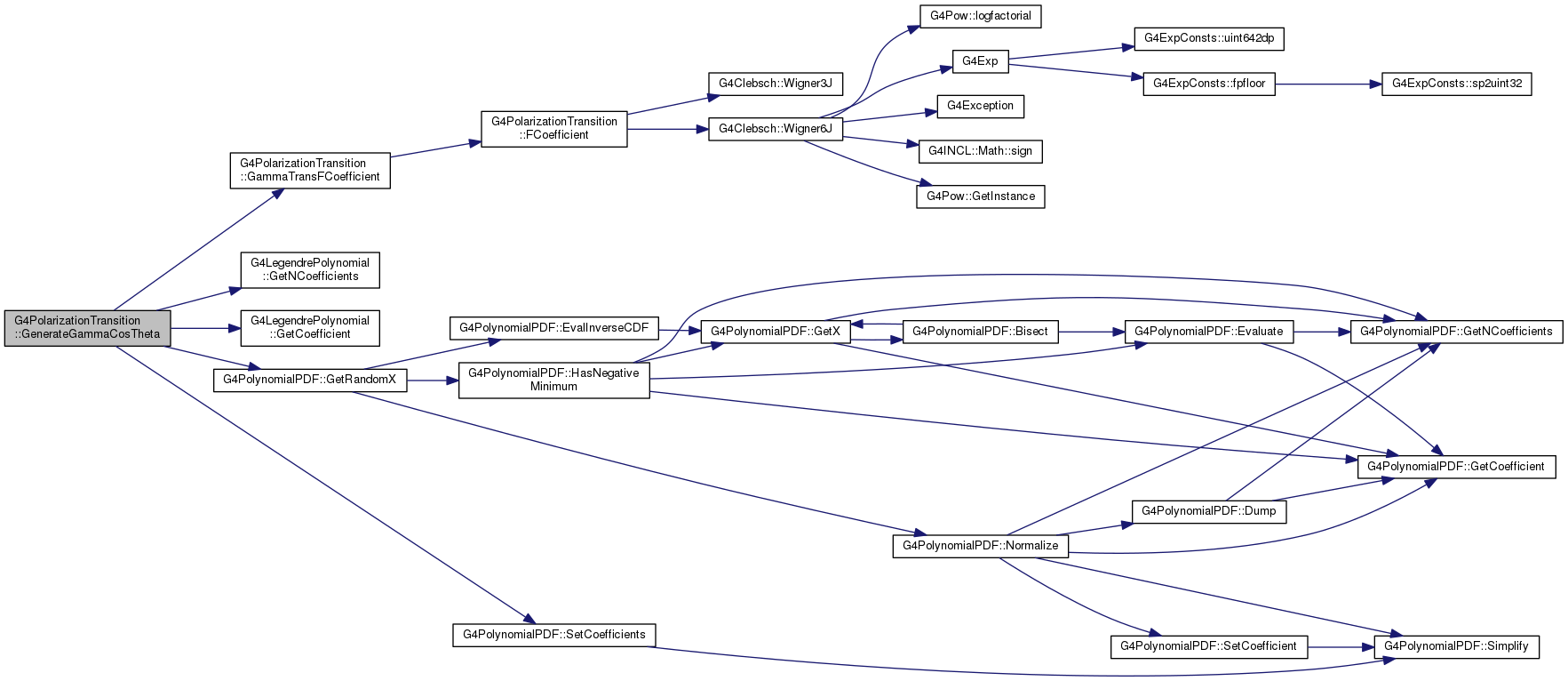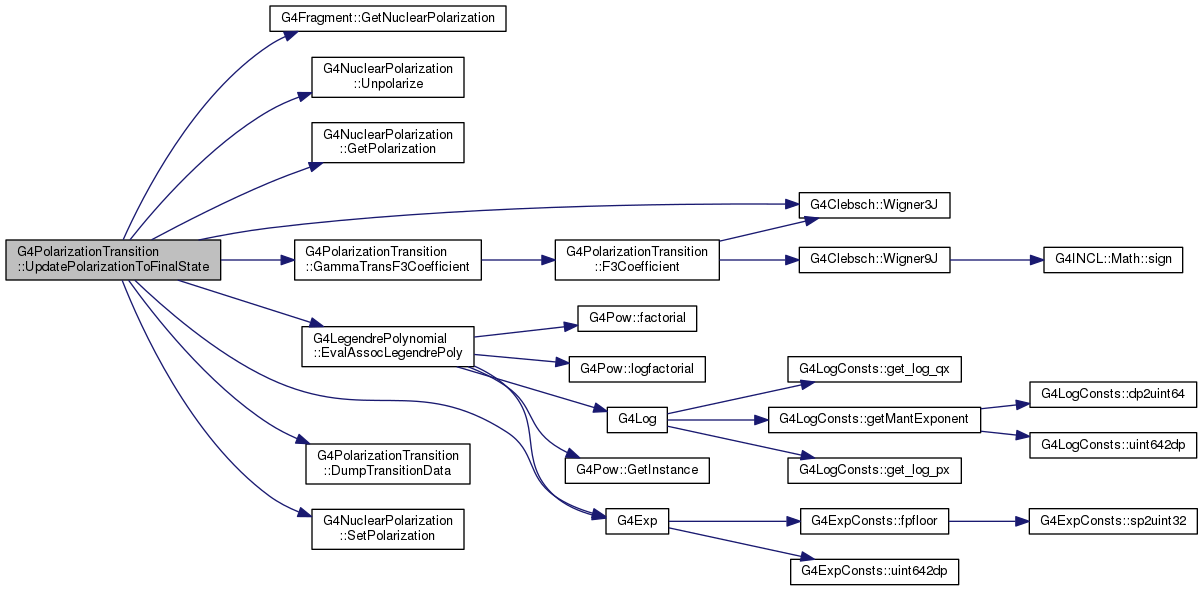|
Geant4
10.03.p03
|
|
Geant4
10.03.p03
|
#include <G4PolarizationTransition.hh>
Public Member Functions | |
| G4PolarizationTransition () | |
| ~G4PolarizationTransition () | |
| G4double | FCoefficient (G4int K, G4int L, G4int Lprime, G4int twoJ2, G4int twoJ1) const |
| G4double | F3Coefficient (G4int K, G4int K2, G4int K1, G4int L, G4int Lprime, G4int twoJ2, G4int twoJ1) const |
| G4double | GammaTransFCoefficient (G4int K) const |
| G4double | GammaTransF3Coefficient (G4int K, G4int K2, G4int K1) const |
| void | SetGammaTransitionData (G4int twoJ1, G4int twoJ2, G4int Lbar, G4double delta=0, G4int Lprime=1) |
| G4double | GenerateGammaCosTheta (const POLAR &) |
| G4double | GenerateGammaPhi (G4double cosTheta, const POLAR &) |
| void | UpdatePolarizationToFinalState (G4double cosTheta, G4double phi, G4Fragment *) |
| void | DumpTransitionData (const POLAR &pol) const |
| void | SetVerbose (G4int val) |
Definition at line 58 of file G4PolarizationTransition.hh.
|
explicit |
Definition at line 49 of file G4PolarizationTransition.cc.
| G4PolarizationTransition::~G4PolarizationTransition | ( | ) |
Definition at line 54 of file G4PolarizationTransition.cc.
| void G4PolarizationTransition::DumpTransitionData | ( | const POLAR & | pol | ) | const |
Definition at line 319 of file G4PolarizationTransition.cc.

| G4double G4PolarizationTransition::F3Coefficient | ( | G4int | K, |
| G4int | K2, | ||
| G4int | K1, | ||
| G4int | L, | ||
| G4int | Lprime, | ||
| G4int | twoJ2, | ||
| G4int | twoJ1 | ||
| ) | const |
Definition at line 68 of file G4PolarizationTransition.cc.


| G4double G4PolarizationTransition::FCoefficient | ( | G4int | K, |
| G4int | L, | ||
| G4int | Lprime, | ||
| G4int | twoJ2, | ||
| G4int | twoJ1 | ||
| ) | const |
Definition at line 57 of file G4PolarizationTransition.cc.


Definition at line 105 of file G4PolarizationTransition.cc.


Definition at line 96 of file G4PolarizationTransition.cc.


| G4double G4PolarizationTransition::GenerateGammaCosTheta | ( | const POLAR & | pol | ) |
Definition at line 115 of file G4PolarizationTransition.cc.


Definition at line 141 of file G4PolarizationTransition.cc.


| void G4PolarizationTransition::SetGammaTransitionData | ( | G4int | twoJ1, |
| G4int | twoJ2, | ||
| G4int | Lbar, | ||
| G4double | delta = 0, |
||
| G4int | Lprime = 1 |
||
| ) |
Definition at line 81 of file G4PolarizationTransition.cc.

Definition at line 87 of file G4PolarizationTransition.hh.

| void G4PolarizationTransition::UpdatePolarizationToFinalState | ( | G4double | cosTheta, |
| G4double | phi, | ||
| G4Fragment * | frag | ||
| ) |
Definition at line 213 of file G4PolarizationTransition.cc.

